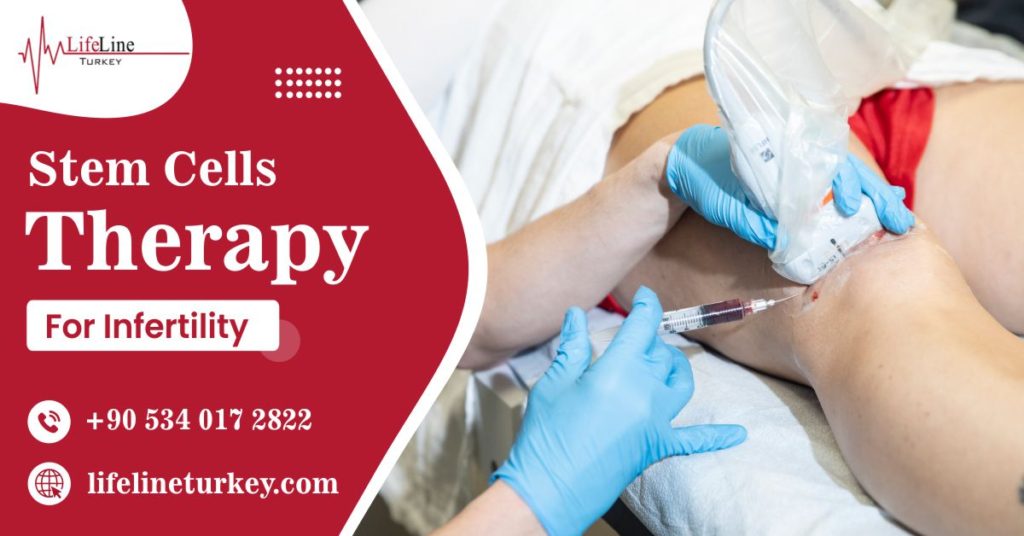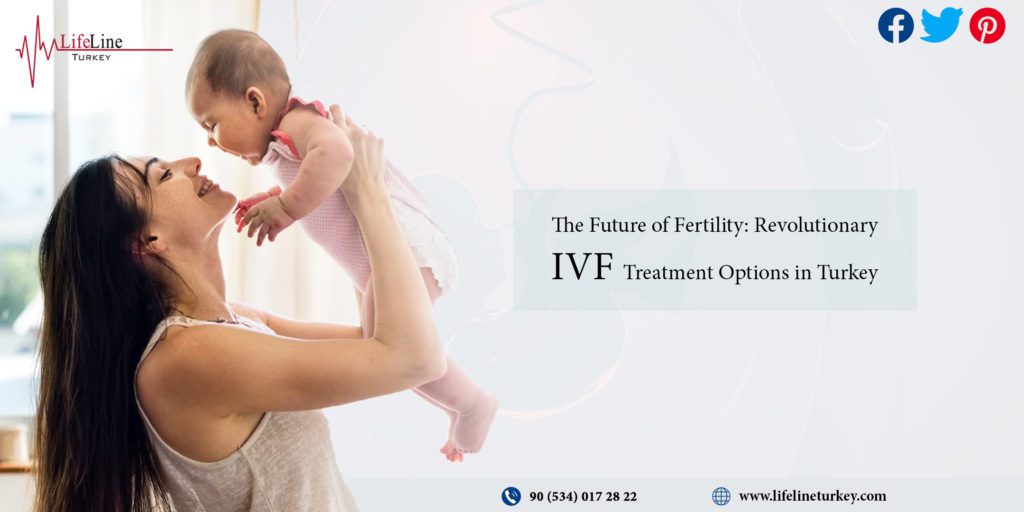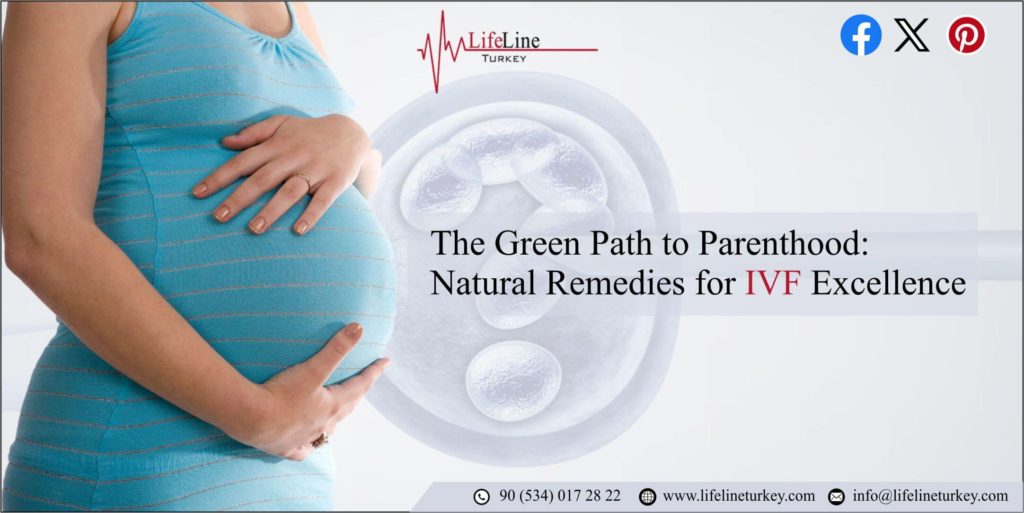In vitro fertilization (IVF) has been a remarkable advancement in reproductive medicine, helping countless couples overcome infertility challenges and fulfill their dreams of parenthood. However, IVF success rates are not always as high as desired, and the process can be emotionally and physically taxing for couples. In recent years, advancements in medical science have paved the way for groundbreaking discoveries, and one such innovation that holds immense promise is the integration of Stem Cell Therapy in Turkey.
IVF has already revolutionized the field of assisted reproductive technology, offering hope to couples struggling with infertility. Now, researchers are exploring the potential of stem cells to enhance the success rates and overall outcomes of IVF procedures. In this blog post, we’ll explore how stem cells could be the future of successful IVF, offering new hope and possibilities for couples struggling to conceive.
Understanding Stem Cells and IVF
What are Stem Cells?
Stem cells are remarkable cells that can uniquely differentiate into various cell types in the body. They can become specialized cells, such as muscles nerves, and even reproductive cells like eggs and sperm.
The Role of Stem Cells in Infertility Treatment Traditionally, IVF involves fertilizing an egg with sperm outside the body and transferring the resulting embryo back into the uterus. However, this process is not always successful due to poor egg quality, embryo implantation failure, and age-related infertility. It is where stem cells come into play.
Stem Cells: A Game-Changer in IVF
Here’s how stem cells could revolutionize IVF:
Improved Egg Quality: Stem cells can rejuvenate and repair damaged cells. By introducing Stem cell infertility treatment intothe ovaries, researchers aim to stimulate the growth of healthier eggs. It can lead to a higher quality of eggs available for fertilization, ultimately increasing the chances of a successful IVF procedure.
Enhanced Embryo Implantation: Successful embryo implantation into the uterine lining is critical in IVF. Stem cells can promote a more receptive uterine environment, making it more conducive for embryo attachment. This enhancement in implantation conditions can reduce the risk of implantation failure and improve the chances of a successful pregnancy.
Fertility Preservation: Stem cells offer hope for individuals facing medical conditions, such as cancer, that threaten their fertility. By preserving reproductive cells through cryopreservation and utilizing stem cell-based therapies, individuals can potentially restore their fertility after undergoing necessary medical treatments.
Personalized Treatment: Stem cell-based IVF treatments have the potential to be personalized to each individual’s unique needs. Utilizing a patient’s stem cells can tailor the treatments to address specific challenges, such as egg quality issues or implantation difficulties.
Reduced Risk of Genetic Disorders: Through advanced genetic techniques, doctors screen the stem cells for genetic disorders before being utilized in IVF procedures. It can help reduce the risk of passing hereditary diseases to the offspring.
Potential to Extend Fertility: As women increasingly delay pregnancy for various reasons, stem cell-based therapies could extend a woman’s reproductive window. By improving egg quality and addressing age-related fertility decline, stem cells may allow women to conceive later.
Minimized Need for Multiple IVF Cycles: IVF can be emotionally and physically taxing, especially if multiple cycles are required. Stem cells’ ability to enhance egg quality and embryo implantation may lead to higher success rates on the first cycle, reducing the need for multiple attempts.
Advancement in Assisted Reproductive Technology: Integrating stem cells into IVF significantly advances assisted reproductive technology. It opens up new avenues for research and innovation, ultimately contributing to higher success rates and improved outcomes for couples struggling with infertility.
Ethical Alternatives to Traditional Methods: Stem cell-based approaches provide an ethical alternative to traditional methods of obtaining reproductive cells. For instance, stem cells could generate eggs and sperm in the lab, potentially reducing the reliance on donor eggs or sperm.
Renewed Hope: Integrating stem cells into IVF offers renewed hope for individuals and couples facing conceiving challenges. It represents a cutting-edge approach that has the potential to revolutionize fertility treatments and increase the chances of fulfilling the parental dream.
- Ovarian Stem Cells (OSCs):
- Believed to exist within the ovary.
- Potential to differentiate into oocytes (egg cells)
- Mesenchymal Stem Cells (MSCs):
- Found in bone marrow, adipose (fat) tissue, and the umbilical cord.
- It may differentiate into granulosa cells, supporting oocyte development.
- Induced Pluripotent Stem Cells (iPSCs):
- Reprogrammed adult cells with a pluripotent potential.
- Early-stage research for generating oocytes.
- Umbilical Cord Blood Stem Cells:
- It includes hematopoietic stem cells (HSCs) and mesenchymal stem cells (MSCs).
- Supportive tissue repair and the ovarian microenvironment.
- Adipose-Derived Stem Cells (ADSCs):
- Derived from adipose (fat) tissue.
- Investigating the regenerative potential of improving ovarian function.
- Ovarian Tissue Transplantation:
- It is not stem cells but involves transplanting a woman’s ovarian tissue.
- It is used to restore ovarian function in some cases.
The Road Ahead: Challenges and Opportunities
Scientific and Ethical Considerations While the potential of stem cells in IVF is exciting, scientific and ethical considerations must be carefully addressed. Ensuring the safety and efficacy of stem cell interventions is paramount, and researchers must navigate the ethical implications of manipulating reproductive cells.
Regulatory Approval For stem cell-based IVF treatments to become a reality, they must undergo rigorous clinical trials and obtain regulatory approval. The path to commercialization involves demonstrating the safety and effectiveness of these novel techniques, which requires time and substantial investment.
Lifeline Turkey for Successful IVF Treatment with Stem Cells
Lifeline Turkey can assist you with integrating successful stem cell therapy for infertility. We represent a remarkable leap forward in the pursuit of successful fertility treatments. With the potential to enhance egg quality, improve embryo implantation, and offer solutions for fertility preservation, we hold the key to addressing some of the most pressing challenges in assisted reproductive technology. The future of IVF looks promising, offering renewed hope to individuals and couples on their journey toward parenthood.



